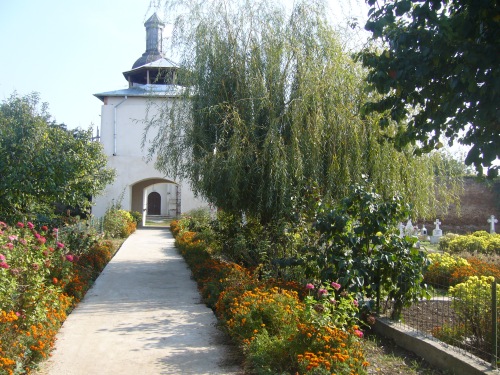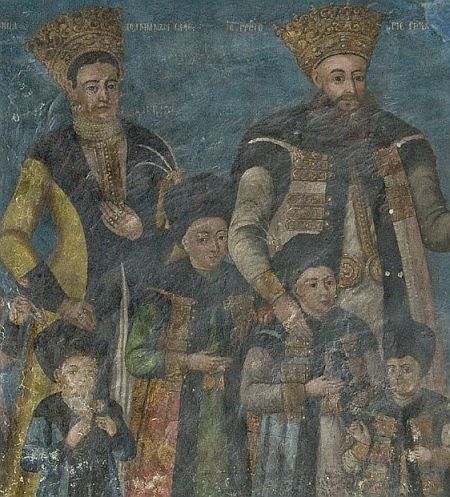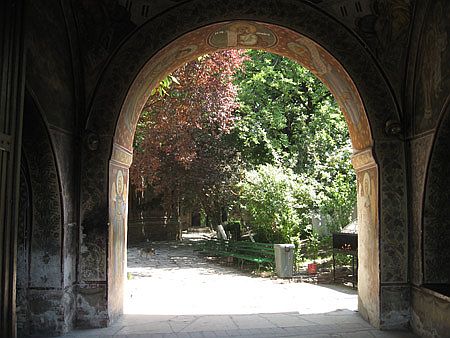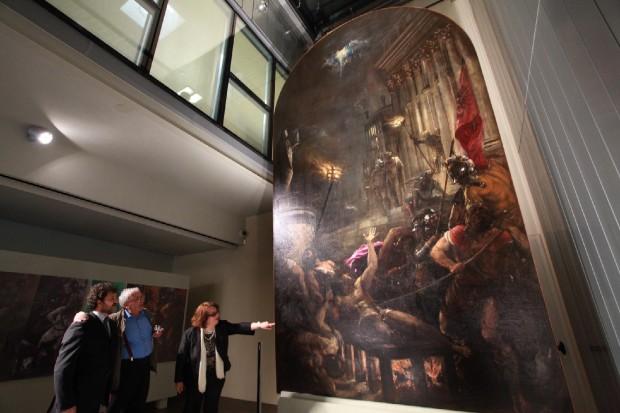
Romanians. Clearly the people are the main reason
for liking any country, though the countryside and the crumbling
inner city of Bucharest come close behind.
Romanians are Latins surrounded by Hungarians and Slavs, marooned in the wrong part of Europe where they endure with surprise each year the bitterly cold winters. Though theirs is a comparatively poor country the people seem happier than in most countries. They are open, friendly, warm, always human, usually emotional.
Everything about Romanians seems to be
paradoxical. Romanians are very human and see everything in human, not in
abstract terms, but when they write about ideas they always start from abstract
and sometimes cloudy first principles. They are the warmest, the most generous
and kindest of people, but can be astonishingly cruel and very malicious. Someone told me when I came here that
‘Romanians have no gratitude and no mercy’ and that is certainly true of very many,
though by no means all. They are very mystical yet have their feet on the
ground. They are very other-worldly but are often materialistic.
They are very romantic yet brutally unromantic. They
try very hard to be cynical. They are very suspicious and live in an atmosphere
of fear. Romanians are very much friendlier
than the English but much, much more formal. Respect is terribly important – because
power is terribly important. This is the Middle East, dreaming that it is France.
Romanians love visiting their countryside – all
but a few pretentious ones – love eating Romanian food in restaurants – same
caveat – and love hiking and camping, all of which was how it was in England in
the 1950s. They tend to be conventional and conformist but my friends are not.
You can be eccentric in Romania and bohemian, but it takes more courage than in
England, where eccentrics are not tolerated but admired. Non-comformist is a word that often means a woman who takes many lovers.
In Romania under Communism television only
broadcast for two hours a day meant until the Revolution the Romanians were
spared a huge amount of idiocy and had time instead for reading, conversation,
drinking wine, and the national sport, seducing one another. I suppose that was
how it was in Victorian England too, except with less wine. Romanians who were
twenty or so in 1989 are usually much better read than the English. Those who
are not well read nevertheless have a surprisingly large amount of information
about their medieval history and take pride in it. Only a minority of people in
England, I was shocked to discover recently, know who were Hengist and Horsa,
the first Englishmen recorded by history and our Burebistas. Even a highly
intelligent history graduate from Cambridge did not. In any case, the English
have been taught to think that history is simply the chronicle of oppression.
The Romanians who were continuously oppressed by their rulers and foreigners
take pride in their kings.
Romania has so far escaped the worldwide cultural
revolution – not Mao’s one, but the one that happened in the capitalist world
starting in the 1960s and which is showing no signs of abating. One of the
great charms of Romania is that the 1960s did not happen in here. The EU will
change that, but not quite yet. There was never what in the 1960s was called
the generation gap. Adulthood as perpetual adolescence, unlike in Anglo-Saxon
countries, is not an idea which has reached here. People become adults when
they start work, just like in England until the 1950s. But if feminism and political correctness have not arrived, two even more important legacies of the 1960s in the West, consumerism and celebrity culture, are here and Romania has a tabloid press like everywhere else. It has idiotic television too and rock music though old fashioned 1930s Romanian music is still hugely popular among young and old.
Romania is not at all cool, is utterly uncool,
thank God, and yet in its own un-self-conscious way the broken streets and
beautiful women of Bucharest are as cool as it gets. And if Bucharest may not be cool it is very glamorous in a tropical, Latin American way. I do not like nightclubs
(you must never use that word with Romanians because they think it means
something improper) but the fashionable nightclubs have a chic of their own.
Romanians are genteel. A notorious American womaniser said, in the late 1990s, that dating Romanian
women was like dating gorgeous 24 year old versions of your mother’s friends.
Romanian women and men are still like that.
Romanians expect the worst but always contrive to
be shocked that things are even worse than they imagined. People tut-tut about scandals and are easily scandalised, even though Bucharest in many ways is Babylon. Is anyone in England ever scandalised anymore?
Romania felt about 1952 here when I arrived. Now
it feels about 1964.
Romanians esteem brains and learning – in England
it is more admirable to be good at games or was before the Palaeolithic Age, when I lived there. Here class is about grammar and educational
qualifications, rather than about accent or clothes (Romanian rich men dress
appallingly, though their wives are learning) or money. They also know that
physical good looks are very very important and discuss other people’s
appearances with penetration and complete absence of charity. They are more
profound than the English, who think it is superficial to talk about other
people’s looks.
Romanian taxi drivers. They form the chorus in the
Greek drama (it’s a comedy, not a tragedy) of my life here. Like in every
country, the people who really know how to run things are too busy driving cabs
or cutting hair. Taxi drivers become very dull when they talk about the
political class in general (we know they are thieves and bandits) but they have much to say that is
very interesting about God, how things were in the old days, love and death.
Taxi drivers and barbers know everything. So do illiterates, but that is
another story.
The parties. Romanians GIVE GREAT ONES.
The lack of diversity, although things become more
pluralistic. Despite the terrible damage that Communism did to this country,
which it maimed, there is still a tremendous sense of cohesion and common
values. People
are assumed to be Orthodox, unless proven otherwise. Catholics are considered
odd but are regarded as slightly grand – but Adventists, Baptists and adherents
to other sects are not considered true Romanians at all. I like this very much.
I only wish this cohesiveness went with a sense of public spirit, but this
seems to be absent in all the Orthodox as well as all the post-Communist countries.
I believe the wine is wonderful. So Claudia Pendred says and she is an expert, but I usually
drink plonk. I do however love the only grape which is unique to this part of
the world, Feteasca Neagra. They do very good roses too.
Bucharest, the European Havana, is still probably the most
interesting capital city in many ways in Europe. Living in Bucharest is like
living in a film noir full of gangsters, corrupt officials, femmes fatales, old
men in hats. The town has so very much energy. It is a twenty-one year old –
London and Paris are in their fifties. Most of all the broken run-down streets
of Bucharest. Until about seven years ago the slummy Old Town in Bucharest,
where I live, which is now a sea of wine-bars and restaurants. But let us enjoy
the new rather than regret the past: the old town makes people happy and there
are three or four good restaurants there (Sindbad, St George, Lacrimi si
Sfinti and Charme since you ask). The new old town annoys me but it has a buzz and is a
lot of fun. If only it had not descended from the sky almost overnight, but I
rejoice that it came, like many things in Romania, much later than you would
have expected. A lot better than the
sanitised, well-behaved old towns of other capital cities. It certainly beats Covent Garden. And I have it on my doorstep which is convenient.
In Romania, everything is difficult but after a
while you get used to it or you go mad. Every day is completely different from
the one before. These two points are less true than they were five or ten years ago, however.
Romanians believe in God. Also horoscopes, magic, fortune
tellers. Most people tend to take the existence of God for granted, like the sun rising each morning and setting each evening. I love Romanian folk religion and the sense that the other world is close to hand. England would have been a somewhat like this before the Reformation. As an English friend of mine, Nick Brind, said to me:
You know you have been in Romania too long when you can tell someone's star sign from their birthday and throw yourself into an animated discussion about it.
I am not there yet.
The jokes. Romanians have a wonderful sense of humour, rather similar to the English sense of humour: very ironic, very black.
The parties. Oh, I said that before.
The second hand booksellers. Second hand booksellers are, of course, the cream of every nation.
The wartime egalitarianism – people who sleep
rough sit watching open air film shows without exciting the disdain that their
counterparts would do in Western Europe
So-called 'popular music' from before the war (still played very widely) and 'Manele' – a kind of gypsy pop music which
everyone claims to hate but which sells very well - and indigenous Romanian pop music. I also like Nightlosers. I love Ozana Barabancea, an opera singer turned jazz singer, who sings like Marilyn Monroe would have sung had she been a first class jazz singer. When she was blonde, Ozana even looked a little like Monroe.
The old-fashioned terraces where one can get a
bottle of wine and a Bulgarian salad for a song. These are being replaced by
pretentious, more expensive places unfortunately.
Not the food particularly, although it is all
right. This is the one area where Romania’s neighbours the Bulgarians and the
Hungarians beat them. But tocanita with mamaliga is a very fine dish and,
even though I do not much love fish, salau tastes very good. Two of the best dishes here are called Russian salad and Bulgarian salad but I am not sure they are truly Romanian. Anyhow, there is a lot of pork. If you like pork very much you may well like Romanian food. The poet Mircea Dinescu's restaurant, Lacrimi si Sfinti, in the old town in Bucharest, has reinvented Romanian cuisine rather excitingly.
The churches and monasteries, especially, but not only, the
painted monasteries in the Bucovina and the fortified churches of Transylvania. Bucharest is full of wonderful, obscure churches. No-one seems to have heard of some of the best.
Lack of violent crime, but this is not nearly as
true as it was. Crime rates are very low in Romania, except for white collar
crimes, where the rates are very high.
The serendipity.
I’ve told everyone to come to Romania but I am
very glad that nobody follows my advice. I remember in my first week living in
Romania in 1998, an Englishman living here said to me:
You know what’s the best
thing about living in Romania?’
‘No?’
‘It’s thinking about your friends back in
England that are feeling sorry for you.’
And that was true then. Now, instead of inspiring horror when you mention the place in England, it inspires
indifference. It’s just an East European country that competes in the
Eurovision Song Contest. A few people say it sounds fascinating. Most people
simply say it sounds obscure. Most Americans probably do not know where it is.
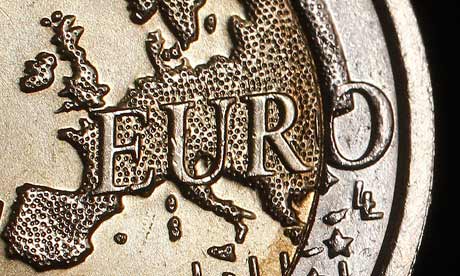
%20(12).jpeg)



